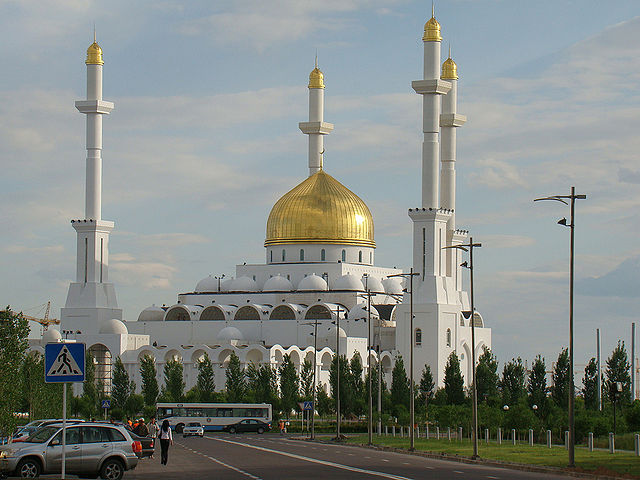
Bennett Briggs
As the world’s largest landlocked country and the ninth largest country in the entire world, Kazakhstan is a diverse and fascinating place for culture, history, and religion. Approximately 70% of the population identifies as Muslim, 24% Russian Orthodox, 3% Atheist, and the remaining 3% a combination of dozens of smaller religions.
Kazakhstan has no official religion and religious freedom has been guaranteed by Article 39 of Kazakhstan’s Constitution that states: “Human rights and freedoms shall not be restricted in any way.” Article 14 further prohibits “discrimination on religious basis” and Article 19 ensures that all people have the “right to determine and indicate or not to indicate his/her ethnic, party, and religious affiliation.”
While these laws appear to give a great deal of religious freedom to citizens, sometimes the full effect of the words within the constitution is not realized. Many new laws have come into effect that make it difficult, if not impossible, to register as a religious group. Registration is particularly important in Kazakhstan because religious communities may only practice within the geographic limits of the location in which they are registered (unless they have sufficient numbers to register at the regional or national level). To register locally, at least 50 founding members names must be submitted to the Ministry of Justice (MOJ). To register regionally, groups must have 500 members in each of two separate regions, and to register national requires 5,000 members with adequate representation in each of the country’s regions. Because of these requirements, essentially only the Islamic faith and the Russian Orthodox Church have achieved recognition at a national level.
The laws of Kazakhstan allow everyone to follow his or her religious convictions, take part in religious activities, and disseminate their beliefs with limited restrictions. If the government deems any activity dangerous to health, safety, or the public welfare, they have the right to intervene. The law bans forced conversion of individuals into a religion or forced participation in a religious group’s activities. The law also bans unregistered missionary activity.
There have been scattered reports over the last few years of authorities harassing and discriminating against some minority religious groups via frequent inspections by tax and other authorities, the denial or delay of permits for constructing chapels and other houses of worship, the non-issuance of visas to missionaries, and the prolonged analysis of religious materials. However, leaders of the five religious groups the government considered “traditional”: Islam, Russian Orthodoxy, Roman Catholicism, Lutheranism, and Judaism reported general acceptance and tolerance. These “traditional” religions seem to enjoy a higher level of treatment verses some of the minority and less established religions.
For more information: